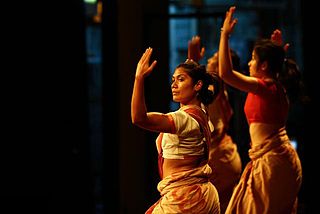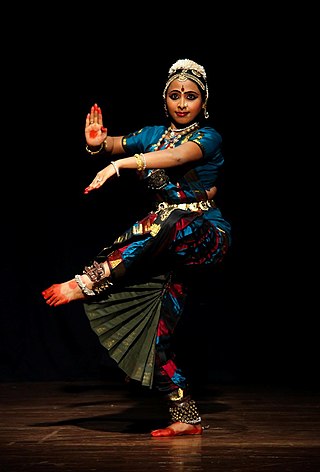Related Research Articles

The Singapore Management University (SMU) is a publicly-funded private university in Singapore. Founded in 2000, SMU is the third oldest autonomous university in the country, modelling its education after the Wharton School. The university is triple accredited by AACSB, EQUIS and AMBA. In 2024, SMU was ranked 44th in the world for Business and Management Studies, while also placing in the top 100 for Economics and Finance by QS.

Indian Singaporeans are Singaporeans of Indian or of general South Asian ancestry. They constitute approximately 9.0% of the country's residents, making them the third largest ancestry and ethnic group in Singapore.

The Tamil diaspora refers to descendants of the Tamil speaking immigrants who emigrated from their native lands in the southern Indian subcontinent to other parts of the world. They are found primarily in Malaysia, Arab states of the Persian Gulf, South Africa, North America, Western Europe, and Singapore. It can be divided into two main diasporic clusters, due to geographical, historical and cultural reasons, as Indian Tamil diaspora and Sri Lankan Tamil diaspora.

The languages of Singapore are English, Chinese, Malay and Tamil, with the lingua franca between Singaporeans being English, the de facto main language. Singaporeans often speak Singlish among themselves, an English creole arising from centuries of contact between Singapore's internationalised society and its legacy of being a British colony. Linguists formally define it as Singapore Colloquial English. A multitude of other languages are also used in Singapore. They consist of several varieties of languages under the families of the Austronesian, Dravidian, Indo-European and Sino-Tibetan languages. The Constitution of Singapore states that the national language of Singapore is Malay. This plays a symbolic role, as Malays are constitutionally recognised as the indigenous peoples of Singapore, and it is the government's duty to protect their language and heritage.

The Sri Lankan Tamil diaspora refers to the global diaspora of Sri Lankan Tamil origin. It can be said to be a subset of the larger Sri Lankan and Tamil diaspora.
Koreans in Singapore consist mainly of South Korean expatriates. The community formed a population of 21,203 as of 2023, according to South Korea's Ministry of Foreign Affairs and Trade, making them the world's 18th-largest Korean diaspora community. Their population has grown by about 60% since 2007. Many South Koreans living in Singapore are usually expatriates, consisting of 40-45% of the community, self-employed or Korean business owners consisting of 30% and students consisting of 20%.
South Asian languages in Singapore are mainly used by the country's 348,119 Indian Singaporean residents, who form about 9.2% of Singaporean citizens and permanent residents. As a result of historical migration and settlement patterns, Indian Singaporeans came to the island from various parts of South Asia speaking a variety of South Asian languages, mostly Tamil. Today, most ethnic Indians in Singapore are locally born second, third, fourth or even fifth generation descendants of immigrant forefathers. In addition, a substantial minority are recent immigrants from the Indian subcontinent.
The history of Singaporean Indians refers to the pattern of ethnic Indian migration and settlement in Singapore from 1819 to the present day. It also includes the social and political history of the Indian community in Singapore during this period.
There is a small Korean community in India, consisting largely of South Korean expatriate professionals and their families, as well as some missionaries and international students at Indian universities.

Singaporean Australians are Australians of Singaporean descent. As Singapore is a multi-racial country, a Singaporean Australian could either be of Chinese, Malay or Indian descent, the main races of Singapore. According to the 2006 Australian census, 39,969 Australians were born in Singapore while 4,626 claimed Singaporean ancestry, either alone or with another ancestry.
There is a small Japanese community in India which consists mainly of expatriates from Japan or Indian-born people of Japanese ancestry.

Malaysian Indians or Indo-Malaysians are Malaysian citizens of Indian or South Asian ancestry. Most are descendants of those who migrated from India to British Malaya from the mid-19th to the mid-20th centuries. Most Malaysian Indians are ethnic Tamils; smaller groups include the Malayalees, Telugus and Punjabis. Malaysian Indians form the fifth-largest community of Overseas Indians in the world. In Malaysia, they represent the third-largest group, constituting 7% of the Malaysian population, after the Bumiputera and the Chinese. They are usually referred to simply as "Indians" in English, Orang India in Malay, "Yin du ren" in Chinese.
There is a small Italian community in India consisting mainly of Indian citizens of Italian heritage as well with expatriates and migrants from Italy who reside in India.
There is a community of Thais in India consisting mostly of international students and expatriates from Thailand and people born in India with Thai ancestry.
Malaysians in India consists of expatriates and international students from Malaysia as well as Indian citizens who are of Malaysian descent. Most of them are Malaysians of Indian origin. As of 2015, an estimated 12,442 Malaysians, mostly working for Malaysian-based companies as well as students, reside in India, mainly in South India.

Murugashankari Leo is an Indian dance tutor, theatric actor, and research scholar.

The Tamil Nadu diaspora comprises people who have emigrated from South Indian state of Tamil Nadu, to other non-Tamil Indian states and other countries, and people of Tamil Nadu descent born or residing in other non-Tamil Indian states and other countries.
Malaysians in Singapore refers to citizens of Malaysia or Singaporean citizens of Malaysian origin residing in Singapore. According to the United Nations Department of Economic and Social Affairs, the community had a population of 1,132,924 in 2020, making them the world's largest Malaysian diaspora community. The community is also the largest foreign community in Singapore, constituting 44% of the country's foreign-born population and an additional 350,000 Malaysians cross the Johor–Singapore Causeway daily for work and school in the city-state.
Chinese nationals in Singapore refers to Chinese people who are of Chinese nationality residing in Singapore. According to the United Nations Department of Economic and Social Affairs, the community had a population of 514,110 in 2020, with 65,867 originating from Hong Kong and 21,809 from Macau, the 2 special administrative regions of China. The community of Chinese nationals are the 2nd largest foreign community in Singapore, constituting 18% of the country's foreign-born population.
References
- ↑ "World Migration | International Organization for Migration". Iom.int. Retrieved 25 March 2017.
- ↑ : Catching 'India fever'
- ↑ : "THE SINGAPORE-INDIA CONNECTION, AN EVENING WITH CONTACT SINGAPORE" Archived 26 July 2011 at the Wayback Machine